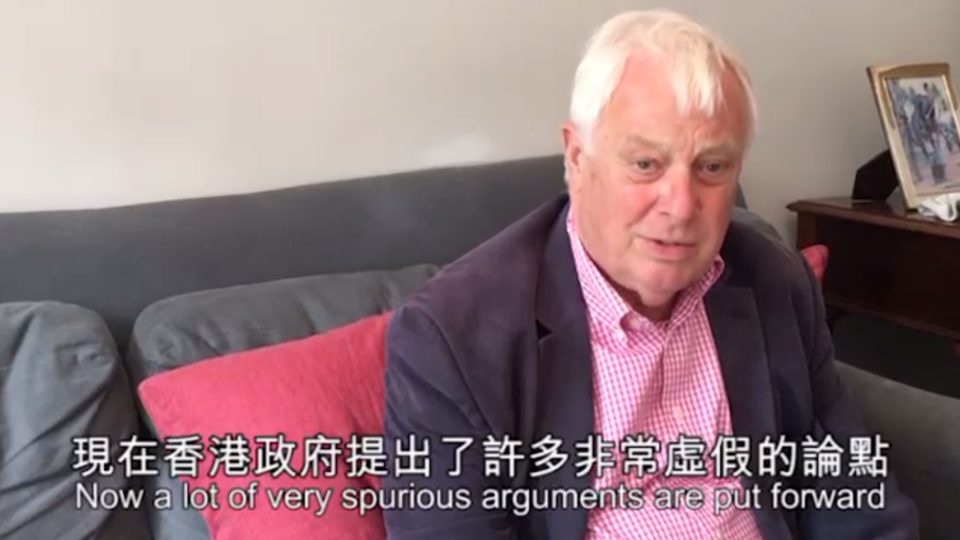Hong Kong’s last colonial governor on Thursday described controversial plans to allow extraditions to mainland China as “a terrible blow” to the financial hub’s reputation as lawyers prepared to hold a rare silent march to protest the proposals.
The city’s pro-Beijing government is pushing a bill through the legislature that would allow extraditions to any jurisdiction with which it doesn’t already have a treaty — including, for the first time, the mainland.
The plans have sparked some of the biggest protests the city has seen in recent years as well as a crescendo of criticism from influential legal groups, business associations, clergy, students, and Western diplomats.
Critics fear the law, if passed, will tangle people up in China’s opaque and politicized court system.
“It’s a proposal, or a set of proposals, which strike a terrible blow… against the rule of law, against Hong Kong’s stability and security, against Hong Kong’s position as a great international trading hub,” Chris Patten, the last British governor of Hong Kong, said in a video statement issued on Thursday.
The government has argued the proposal is needed to plug existing loopholes and that the law needs to be passed quickly in order to extradite a Hong Kong man who is wanted in Taiwan for murdering his girlfriend.
But critics fear the Taiwanese case is being used to ram the law through the city’s parliament at the behest of Beijing.
Patten called the government’s arguments “absolute nonsense,” saying the Taiwan case could be dealt with under Hong Kong’s common law.
“Many of the arguments put forward for the government’s proposals don’t actually pass the laugh-off-your-seat-test,” he adds.
Patten described the move as an attempt “to remove the firewall between Hong Kong’s rule of law” and China, “where there aren’t any independent courts, where the courts and the security services and the party’s rules… are rolled all together.”
“It does make you wonder sometimes who actually runs Hong Kong these days,” he notes at one point. “Is it the Hong Kong government, or is it the joint liaison office acting on behalf of the communist regime in Beijing?”
Patten’s comments came as city lawyers are preparing to take to the streets in a silent march on Thursday evening, a rare protest from within the city’s judicial community.
This week the city’s influential Law Society published a detailed critique of the proposals, adding to opposition already voiced by the Bar Association and multiple chambers of commerce.
Another massive march by members of the public who oppose the bill is scheduled for Sunday.




